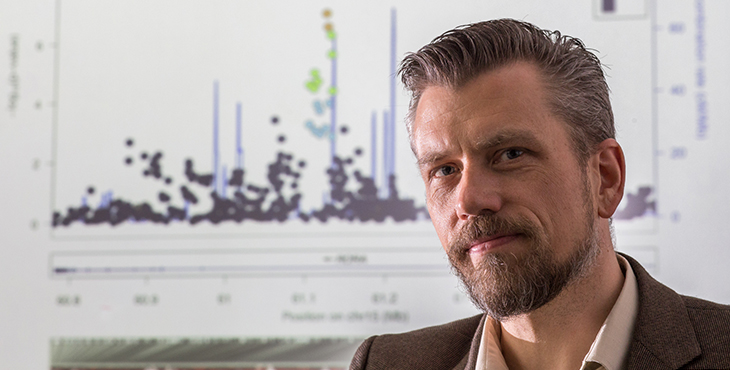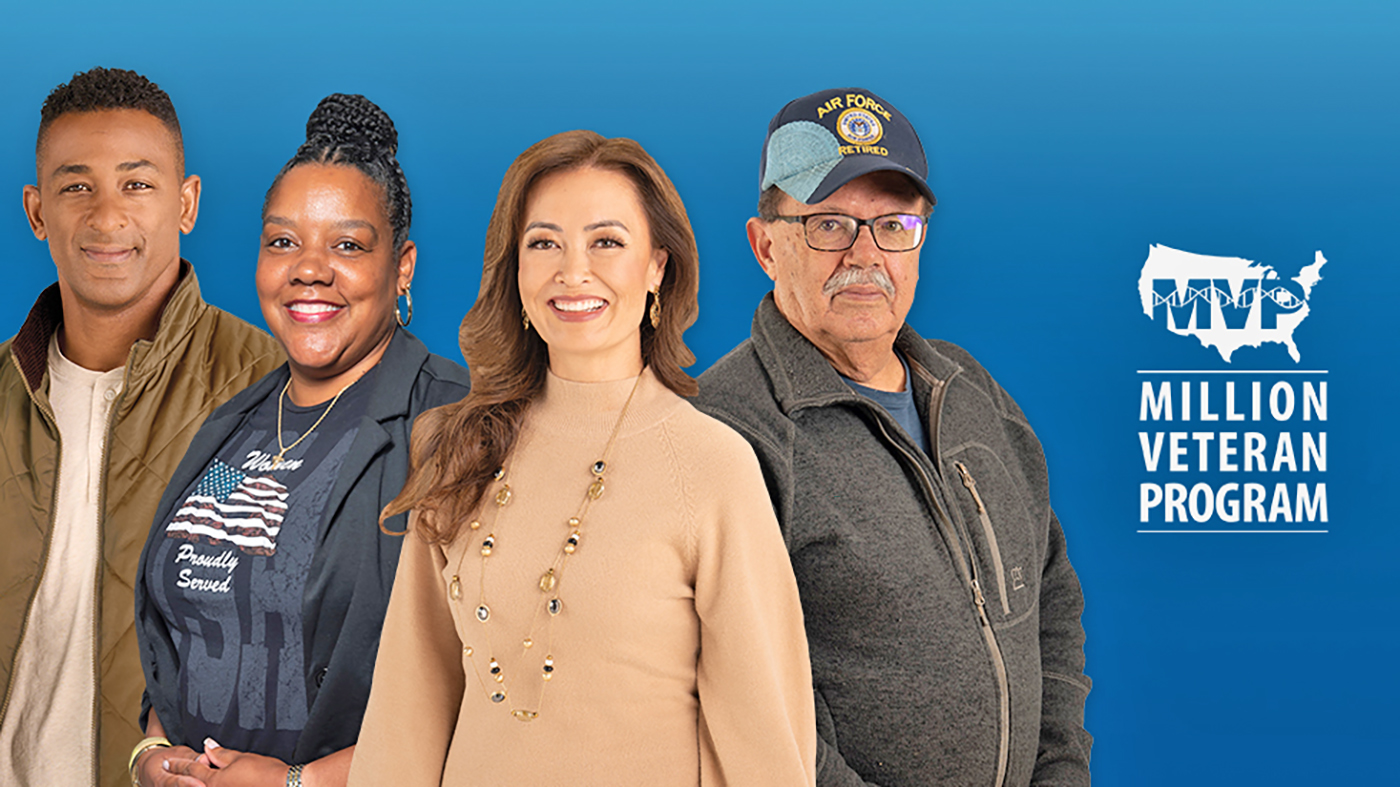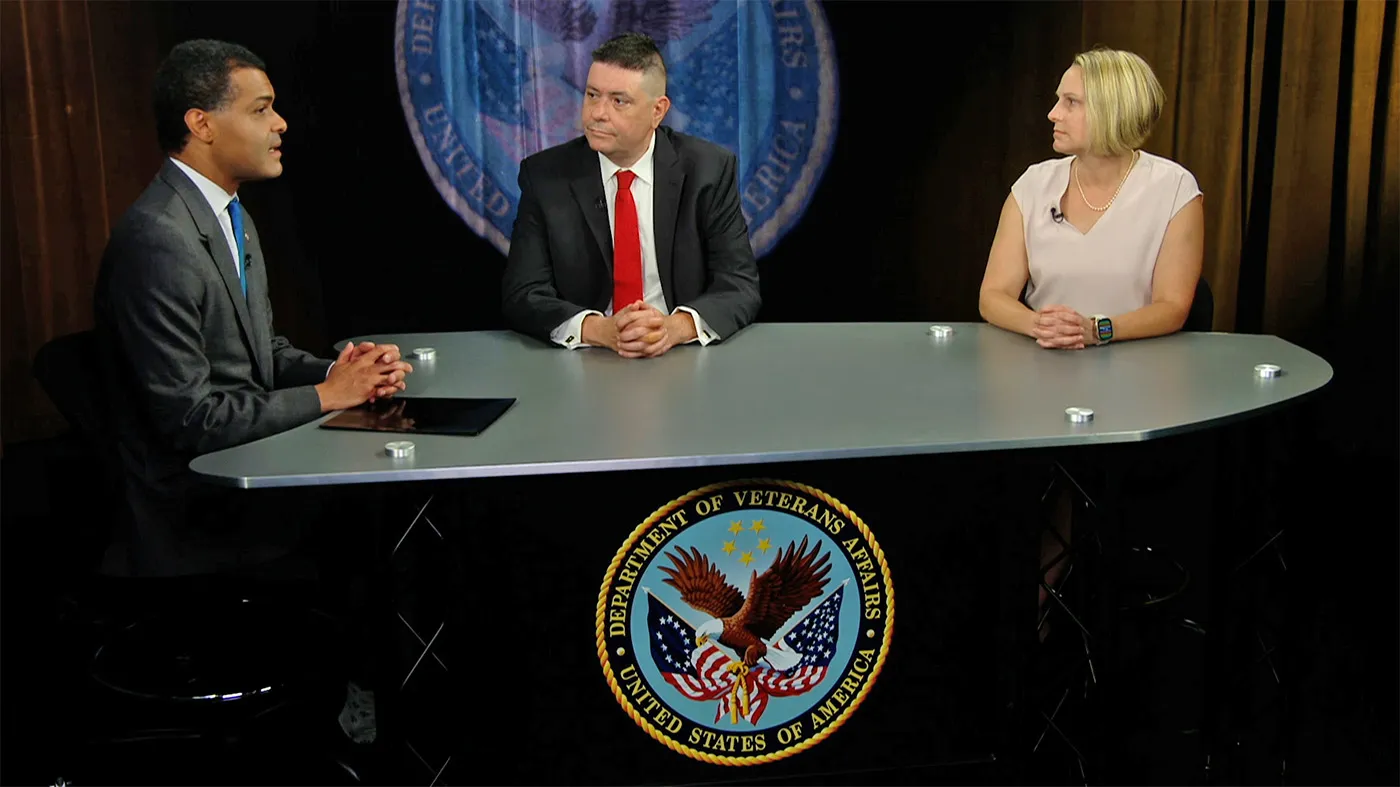Dr. Mark Logue, an Army Veteran, is a statistician in the National Center for PTSD at the VA Boston Healthcare System. His research interests include the genetics of brain disorders such as PTSD, Alzheimer’s disease, and anxiety. He’s also an associate professor of psychiatry at the Boston University School of Medicine. He has published work in dozens of academic journals. Some of his research involves VA’s Million Veteran Program.
When and where did you serve in the military?
I joined the Army Reserves after completing high school in 1989. As a medical supply specialist, I was assigned to a reserve combat support hospital unit in Vancouver, Washington. My work was largely that of a clerk dealing with medical supplies: stocking, doing inventory, ordering replacement parts, and performing other similar tasks. My reserve unit was activated in December 1990, in support of Operation Desert Shield, the lead-up to Operation Desert Storm [the Persian Gulf War]. I was sent to a hospital in Stuttgart, Germany, that was gearing up to handle casualties air-lifted from the Middle East. I worked there to increase capacity by ordering more medical supplies, setting up equipment, and retrofitting rooms to have a larger patient capacity. Fortunately, the high casualty load we were preparing for never arrived. I was released back to the reserves in March 1991, where I stayed until I was discharged in 1997.
What kinds of research are you involved in? How does it potentially impact Veterans?
I work on genetic studies examining the impact of genes on PTSD and Alzheimer’s disease. Because my background is in statistics, my primary focus is on the computation side of things. That means my lab is in an office with a bunch of computers, not a bunch of freezers and test tubes. I write programs and computer scripts to collate and analyze genetic data from hundreds or even thousands of subjects at a time. I then interpret the results.
“Seeing Veterans every day when I enter and leave the building is very motivating. … I want to keep doing research that can help them lead healthier and happier lives.”
My team is looking at genetics across multiple levels, including genetic variation that is inherited from your parents, epigenetic marks that may control which genes are turned off and on, and the activity of the genes themselves in blood samples and brain tissue. Hopefully, identifying genes and biological pathways related to PTSD and Alzheimer’s disease will lead to new treatments and to better identification of Veterans at risk.
How do you feel about the possibility of making life better for Veterans through your research?
Seeing Veterans every day when I enter and leave the building is very motivating. It helps me appreciate the fact that my data come from real people who have volunteered their time to participate in these important duties. These are the real people who we are trying to help. I want to keep doing research that can help them lead healthier and happier lives.
As a medical supply specialist in the Army, I viewed myself as someone who worked in a support role at a desk to help combat soldiers. In some ways, I feel like I’m still working to support those soldiers.
Based on your life experiences to date, what do you believe are the keys to success?
An important part of life is learning. Never stop learning. That doesn’t have to mean going to school and getting a doctorate the way I did. It may just mean finding out more about the world through travel, visiting your local library, or trying new things. Often, the payoff for learning isn’t clear at the outset. But it can lead to new opportunities that you don’t even think are possible.
Topics in this story
More Stories
Diverse representation of women in health care research allows MVP to make discoveries for women’s health
Join the Million Veteran Program online. You will have the option to receive an at-home blood sample collection kit in the mail.
VHA's new podcast series, New Horizons in Health, features a candid discussion of psychedelic assisted therapies for Veterans experiencing mental health conditions.








When you delete ny post instead of learning from vets where the VA has not just failed but crimes against me havent been investigated. You fail vets at least 22 per day, yet your patting your back instead of being ashamed by your ignorance.
Another censorship issue, another VA lie.315
Stats, more bs. Why doesnt the VA ever respond to our comments especially the worthless OIG , Wilkie, when with the click of a mouse files long lost to vets would appear. You folks started out with 12 years of lost medical files starting day one with the passed out drunk exam doctor. You never fixed the pain you caused. Just who do i see about over a million in back pay ? Worthless local Director and asst.dirt.
How long will it take to reply from the moderation maybe 03Jan2020 ?
I am a veteran yet I feel that the system does not include childhood trauma. Not addressing that kind of traumatic event is unconscionable to the victim. He learns he has no worth in a system only for the wartime VET. So he has no one to turn to, for 33,560 Days of the torture, of not knowing what is wrong with him. Plus there is no avenue for him to go down.
Sorry to be rude, but how do you really know what PTSD (combat) really is or do to a person I been suffering with ptsd since the 70,s. Thru treatment with no luck, don’t travel, cannot have anyone close or behind me, I have what VA calls severe triggers, and I hate the psychiatrist who treatment say “let it go” and now what you say, how many dying brothers did you hold while he. Is crying for their mother, father, how many did you see take that last breath of life, you will never be the same, just wish that someday it will.